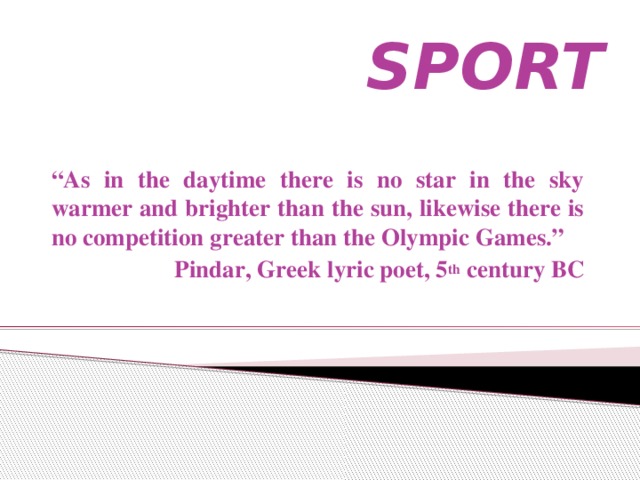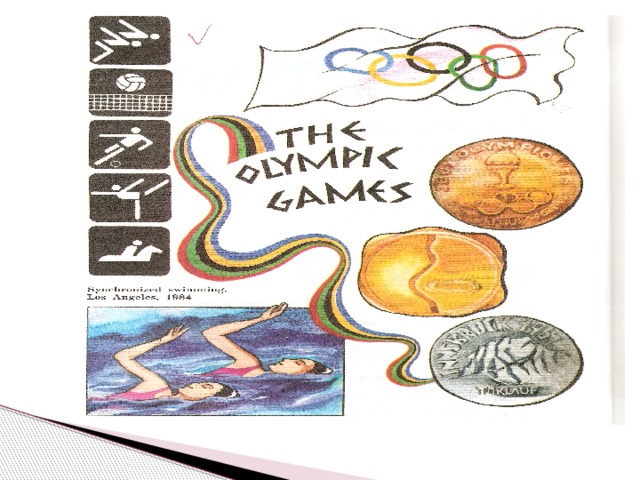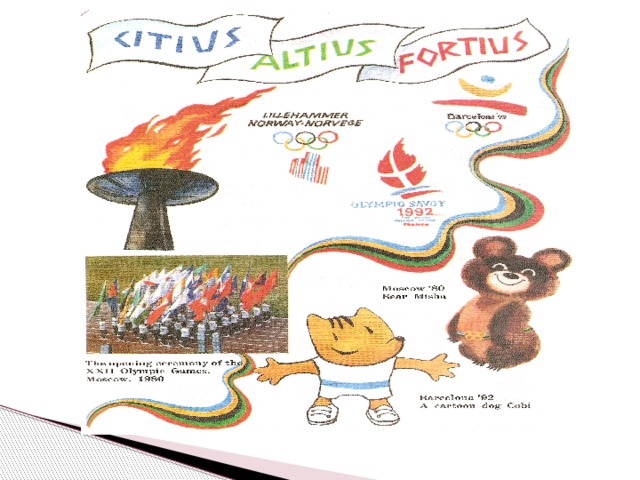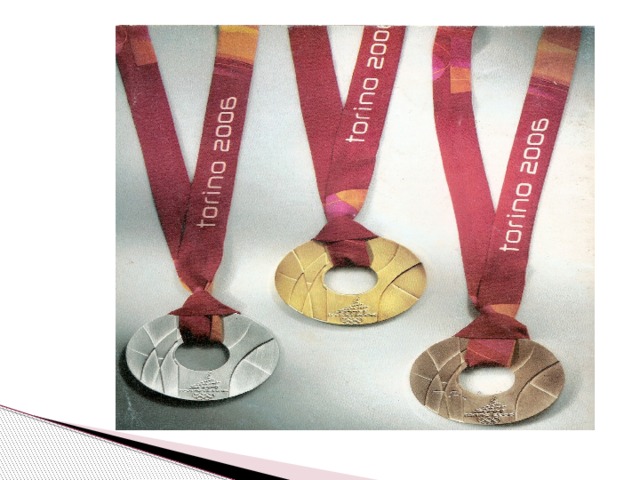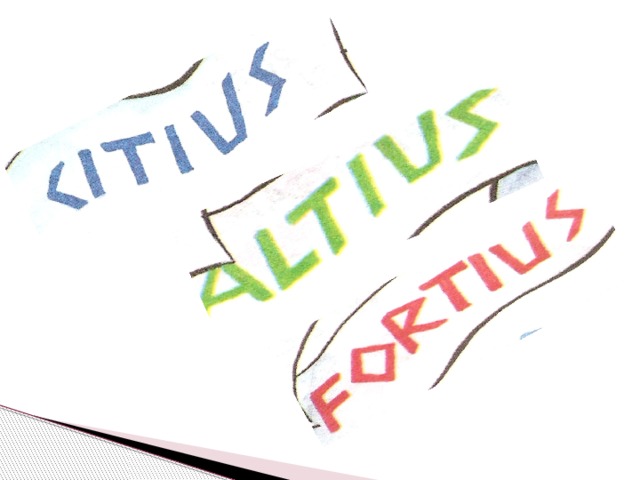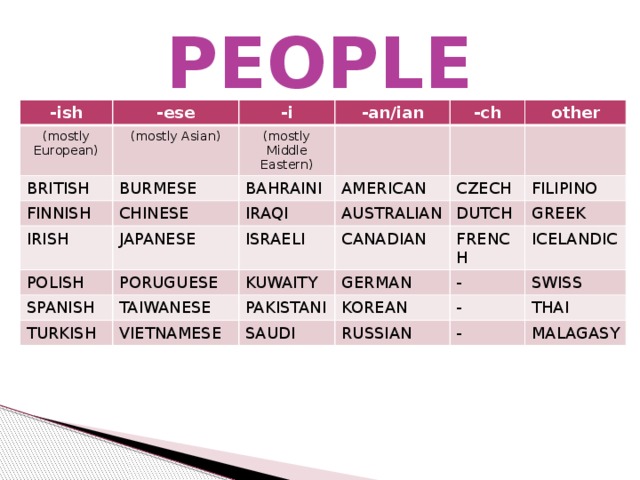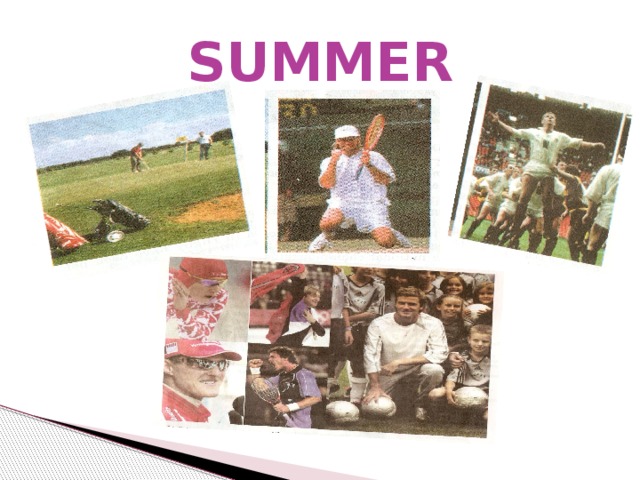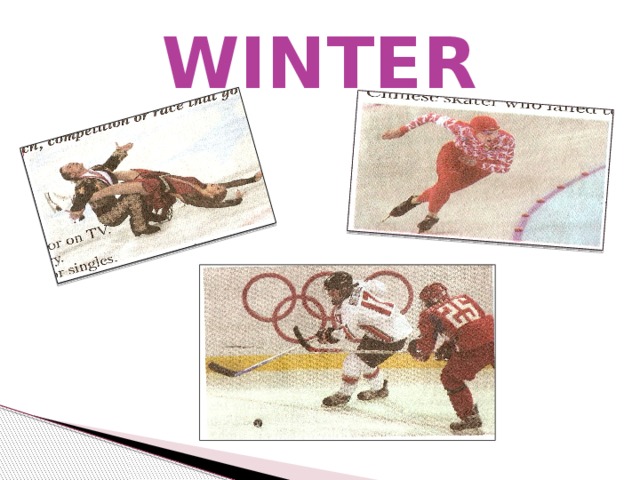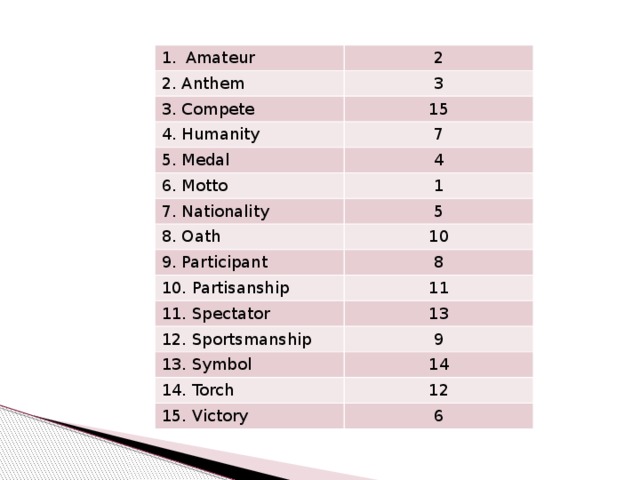Конспект и презентация урока английского языка в 8м классе по теме "Спорт в нашей жизни" по учебнику Кузовлева В.П. На уроке учащиеся знакомятся с историей Олимпийских игр, их символами, девизом. Повторяют суффиксы словообразования, виды спорта. Работая в группах подбирают определения к словам.
Создайте Ваш сайт учителя Видеоуроки Олимпиады Вебинары для учителей
Разработка урока по английскому языку "Sport in our life"
Вы уже знаете о суперспособностях современного учителя?
Тратить минимум сил на подготовку и проведение уроков.
Быстро и объективно проверять знания учащихся.
Сделать изучение нового материала максимально понятным.
Избавить себя от подбора заданий и их проверки после уроков.
Наладить дисциплину на своих уроках.
Получить возможность работать творчески.
Просмотр содержимого документа
«SPORT 8 кл»
Просмотр содержимого презентации
«SPORT 8кл»
Похожие файлы
Полезное для учителя
Распродажа видеоуроков!
2160 руб.
3080 руб.
1760 руб.
2510 руб.
1880 руб.
2690 руб.
1860 руб.
2660 руб.
ПОЛУЧИТЕ СВИДЕТЕЛЬСТВО МГНОВЕННО
* Свидетельство о публикации выдается БЕСПЛАТНО, СРАЗУ же после добавления Вами Вашей работы на сайт
Удобный поиск материалов для учителей
Проверка свидетельства
